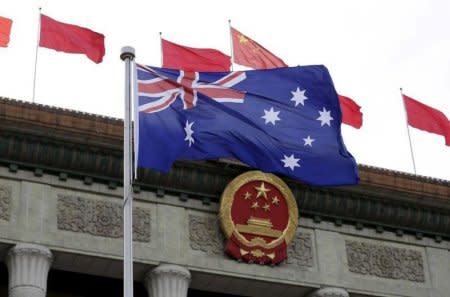Australia must choose between United States and China: U.S. Army official

Thomson Reuters
SYDNEY (Reuters) - A senior U.S. soldier said on Thursday Australia must choose between a stronger U.S. alliance or closer ties with China, and urged Canberra to take a tougher stance against Chinese claims in the South China Sea.
"I think the Australians need to make a choice ... it's very difficult to walk this fine line between balancing the alliance with the United States and the economic engagement with China," U.S. Army Assistant Chief of Staff Colonel Tom Hanson said on Australian Broadcasting Corp. Radio.
"There's going to have to be a decision as to which one is more of a vital national interest for Australia," he said, adding that this was his personal view, and not necessarily that of the U.S. government.
The comments follow the publication of a parliamentary booklet warning Australian lawmakers to treat Chinese motives in the region with caution.
Australia, a staunch U.S. ally, has previously drawn criticism from China for running surveillance flights over disputed islands in the South China Sea, and supporting U.S. freedom of navigation exercises there.
However, Australia has not conducted a unilateral freedom of navigation voyage of its own. A spokeswoman for Australian Foreign Minister Julie Bishop would not comment on future plans.
"Clearly China believes that they have an opportunity and they feel empowered to flout that, and a demonstration by Australia would be welcome," Hanson said.
China is Australia's largest trading partner and a large source of foreign investment, spending $11.1 billion on Australian assets, mostly property, in 2015, accounting and advisory firm KPMG and the University of Sydney have said.
(Reporting by Tom Westbrook; Editing by Paul Tait)
See Also:

 Yahoo Finance
Yahoo Finance 
